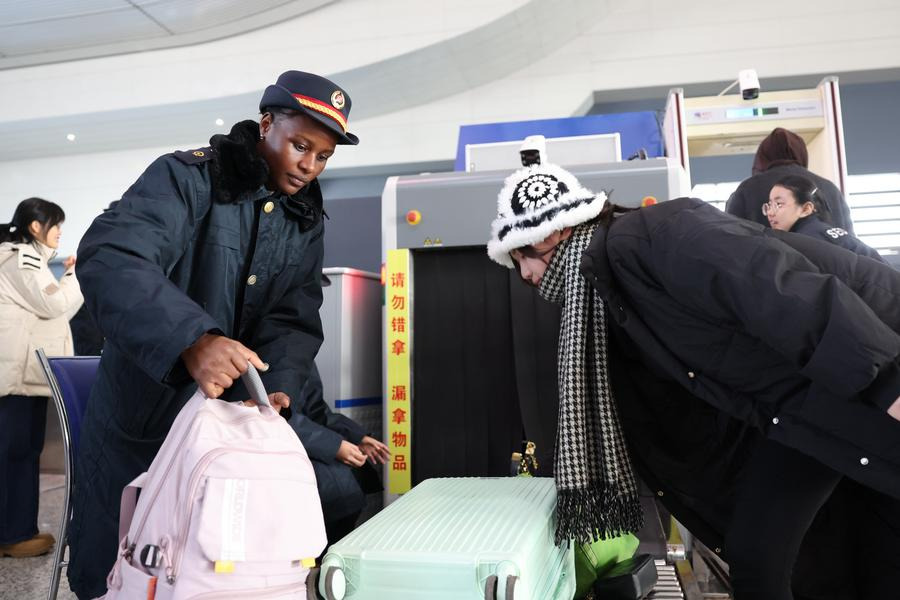Targeted measures help maintain global supply chain


It is hard to deny that consumers in many countries had a tough time getting goods, from masks to electronic products, in a timely manner after the COVID-19 pandemic broke out.
To resolve the issue, China, led by the Communist Party of China, has not only deployed enormous resources and manpower to sustain the operation of the global supply chain since the outbreak, but also adopted more targeted measures to solve problems and challenges facing foreign companies to help ensure stable growth.
In comparison with countries in Southeast Asia or other parts of the world, China has a complete supply chain support system. Backed by its advantage in capacity, China is capable of delivering orders within a short period and meeting overseas clients' demands for short-term replenishment of inventory.
The scale effect of the Chinese market is able to greatly cut the cost of innovation, logistics, market development and even raw material procurement for domestic and global manufacturers, reducing a crucial part of total manufacturing cost.
In addition to further cutting foreign trade companies' costs, and improving their profitability, smooth transportation and logistics, the government has enabled companies to develop clients and get new orders, and facilitate the development of new foreign trade formats, including cross-border e-commerce, to boost the nation's foreign trade.
With Sun Yeli, spokesman for the 20th CPC National Congress, reaffirming on Saturday that China will pursue opening-up on a larger scale and scope and at greater depth, many delegates to the congress told me that after dealing with booming goods demand, skyrocketing sea freight rates and high commodity prices since the start of the COVID-19 pandemic, China's foreign trade sector will retain its upward momentum in spite of challenges threatening the world's economic recovery.
Zhao Ge, a delegate to the congress and director-general of Tianjin Customs, said his customs district will continue to shore up the development of new business forms and high-quality growth of foreign trade.
Apart from bolstering the growth of cross-border e-commerce, Tianjin Customs has supported companies to set up business-to-business warehouses in overseas markets and goods return centers for import channels, assisting businesses to transform and upgrade to explore overseas markets.
Eager to reinforce their earning strength, many Chinese companies are cultivating their internal skills as the current situation requires them to focus on emerging fields and strive to develop markets via innovation and change.
A number of them are also trying to avoid homogeneous price competition and allowing the market to value the differentiation and uniqueness of their products made possible by the accumulation of technology and patents.
"The government has more room to put effective policies in place to advance its foreign trade and fortify the strength of industrial and supply chains," said Gao Rongkun, another delegate to the congress and director-general of Shanghai Customs.
For example, Shanghai Customs has introduced 104 supporting measures to develop a world-class port cluster and promote a more flexible supervision mode in the Yangtze River Delta region.
The total foreign trade value of the region reached 58.4 trillion yuan ($8.13 trillion) between 2017 and 2021, accounting for 36.3 percent of the nation's total, customs data show.
Together with the facilitation of bilateral and multilateral free trade deals, such as the Regional Comprehensive Economic Partnership agreement, China's large-scale comprehensive transportation network that connects the country with the rest of the world will efficiently boost the logistics capability of the world's biggest goods trader over the long run.
- Galactic Energy launches five satellites into orbit
- Xinjiang's development path aligned with Hong Kong, Macao initiatives
- Ningxia aims for 5.5% GDP growth in 2025
- Helicopter service to shorten travel time across Qiongzhou Strait
- 660,000 nursery slots set to open in China
- China greenlights 129,500 EIA approvals in 2024





































